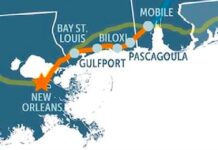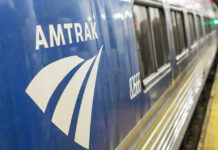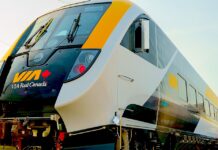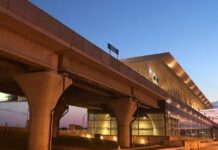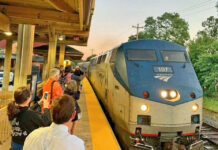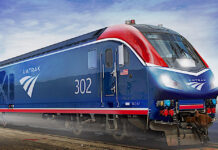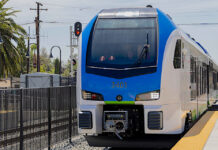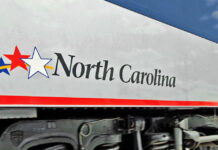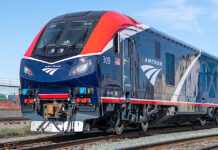
The US is a first-world nation with a third-world rail system
Why has the U.S. failed to develop and implement a high-speed rail system? The increased politicization and partisanship surrounding the transportation issue have contributed to perpetual gridlock with little hope of resolution at the national level. Recognizably, the success of our interstate highway system, which began during the Eisenhower presidency, combined with the increased affordability of automobiles and air travel are major factors that have impeded a high-speed rail system in the U.S. But diagnosis is not prescription. [thehill.com]
JetTrain: Canada’s high-speed dream that never took off
It may have some of the world’s longest railroads, covering vast distances across its wide-open provinces, but one thing Canada doesn’t have is high-speed trains. Of all the economically powerful countries which make up the G7 — the United Kingdom, France, Germany, Italy, Japan, the United States… Canada is the only one with nothing swift coming down the tracks. It has come close though, with a creation that would’ve not only put it on the high speed rail map, but could also have radically shaken up the global rail industry. [cnn.com]
Breaking down Europe’s ambitious targets for rail
The European Union has set some ambitious targets to increase high-speed and conventional passenger rail traffic by the end of the decade. Doubling high-speed rail traffic by 2030 and trebling it by 2050 are stand-out commitments. The EU is also seeking to make journeys of less than 500km carbon neutral by 2030. Challenges are significant. Cross border interoperability and the lack of suitable infrastructure remain problematic. Yet with the climate emergency upping the sense of urgency, the pressure is on rail to finally deliver.[railjournal.com]
Rail reform: why Britain’s railways are getting a full makeover
Chaos has become the descriptor of choice for UK train services, variously characterized by exorbitant fares, delays blamed on weather, and severe overcrowding. The government’s recent rail review represents a complete overhaul. There have long been calls for a modernized fleet to help Britain’s railways cope with – and respond to – the climate crisis. COVID, meanwhile, has intensified the need for a system that serves changing customer needs and working practices. The question is whether these plans will make UK train travel better and cheaper. [theconversation.com]
Have we entered a ‘gilded age of mass transit?’
“Transportation equity” has become a hot topic of late, with much lip service paid to the notion that the country should steer transportation investments so they benefit the disadvantaged the most. The discussion should become more intense with the release of a study that shows which cities gained riders and which ones lost them since 1970 — and where transit connects people to job opportunities and where it doesn’t. [nextcity.org]

